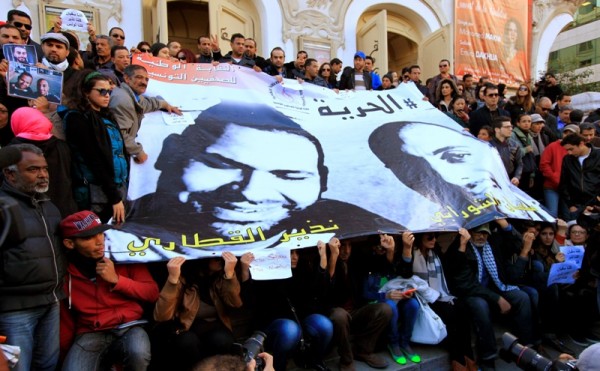Three members of the BBC’s Arabic Service team were detained and beaten by Libyan leader Col Muammar Gaddafi’s forces for 21 hours on Monday, according to the BBC and a variety of news outlets.
Briton Chris Cobb-Smith, Palestinian Feras Killani, and Turkish cameraman Goktay Koraltan had been trying to reach the rebel- ruled Zawiyah, which lies 50km from the capital Tripoli. Fighting has escalated between pro-Gaddafi forces and the insurgents in the strife-torn city, with power allegedly changing hands twice on Wednesday.
After showing identification badges at an army roadblock, the three were arrested and taken to military barracks in Tripoli, where they were beaten with fists, rifles and sticks, and hooded and subjected to mock executions by Gaddafi’s military forces.
The crew members were accused of spying and threatened with death.
According to a statement issued by the BBC, Cobb-Smith said the journalists were lined up against a wall and were convinced they were going to be killed.
“I looked and I saw a plain-clothes guy with a small sub-machine gun. He put it to everyone’s neck. I saw him and he screamed at me,” Cobb said in an interview after his release.
“Then he walked up to me put the gun to my neck and pulled the trigger twice. The bullets whisked past my ear. The soldiers just laughed. Now it just feels like a bad dream.”
The three have since flown out of Libya.
During their detention, the team also saw evidence of torture against other Libyan captives from Zawiyah.
In a statement issued today, the BBC said it “strongly condemns this abusive treatment” of its journalists.
According to the statement, a senior Libyan government official later apologized for the BBC team’s “ordeal” which emerged as Britain presses for a European Union summit declaration calling for Col Gaddafi to step down.
IPI Press Freedom Manager Anthony Mills said: “IPI joins the BBC in condemning the abusive treatment of the team and calls on the Libyan government to end the crimes against journalists in the region. Free movement must be guaranteed to all reporters wishing to cover the crisis, without fear of persecution.”

